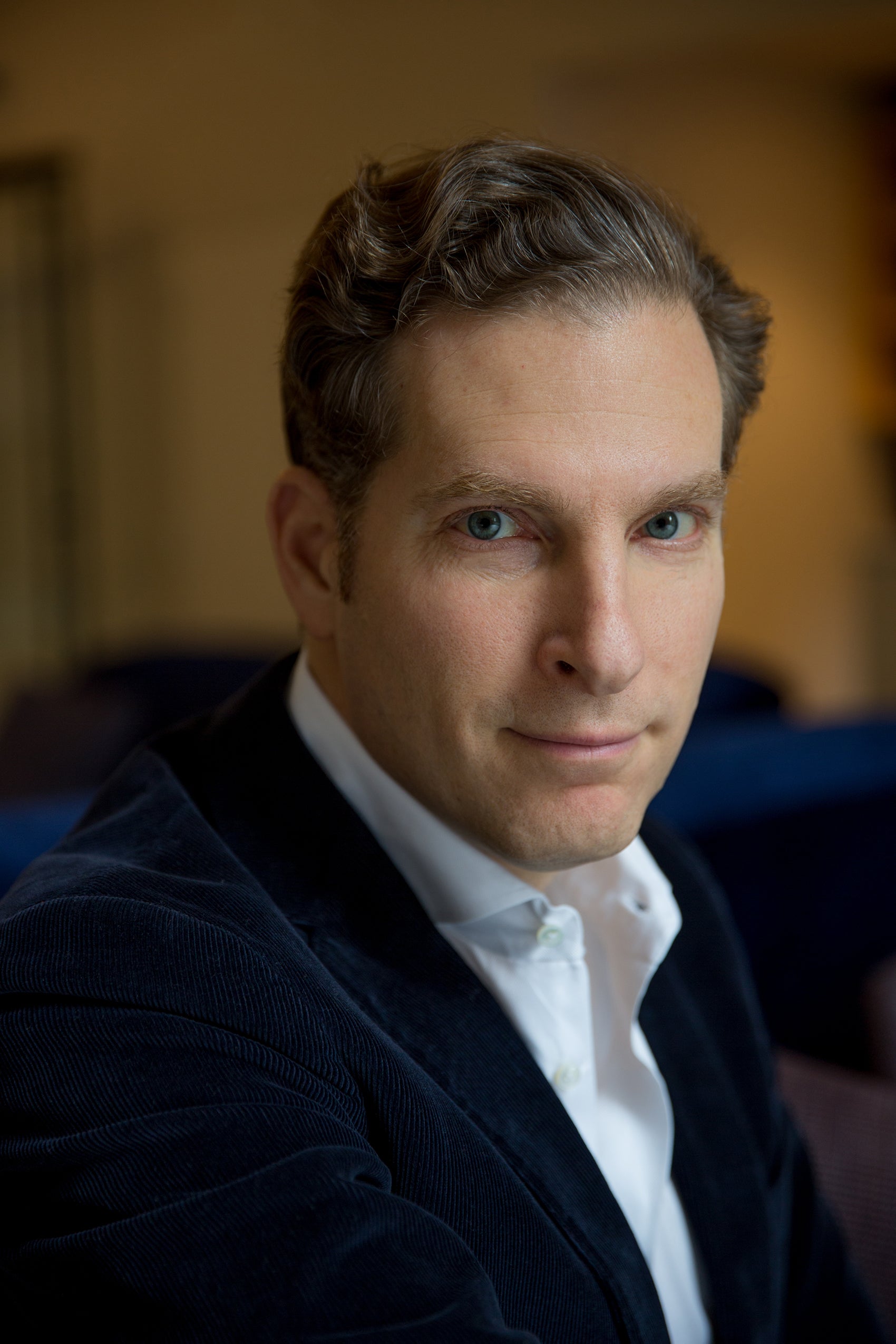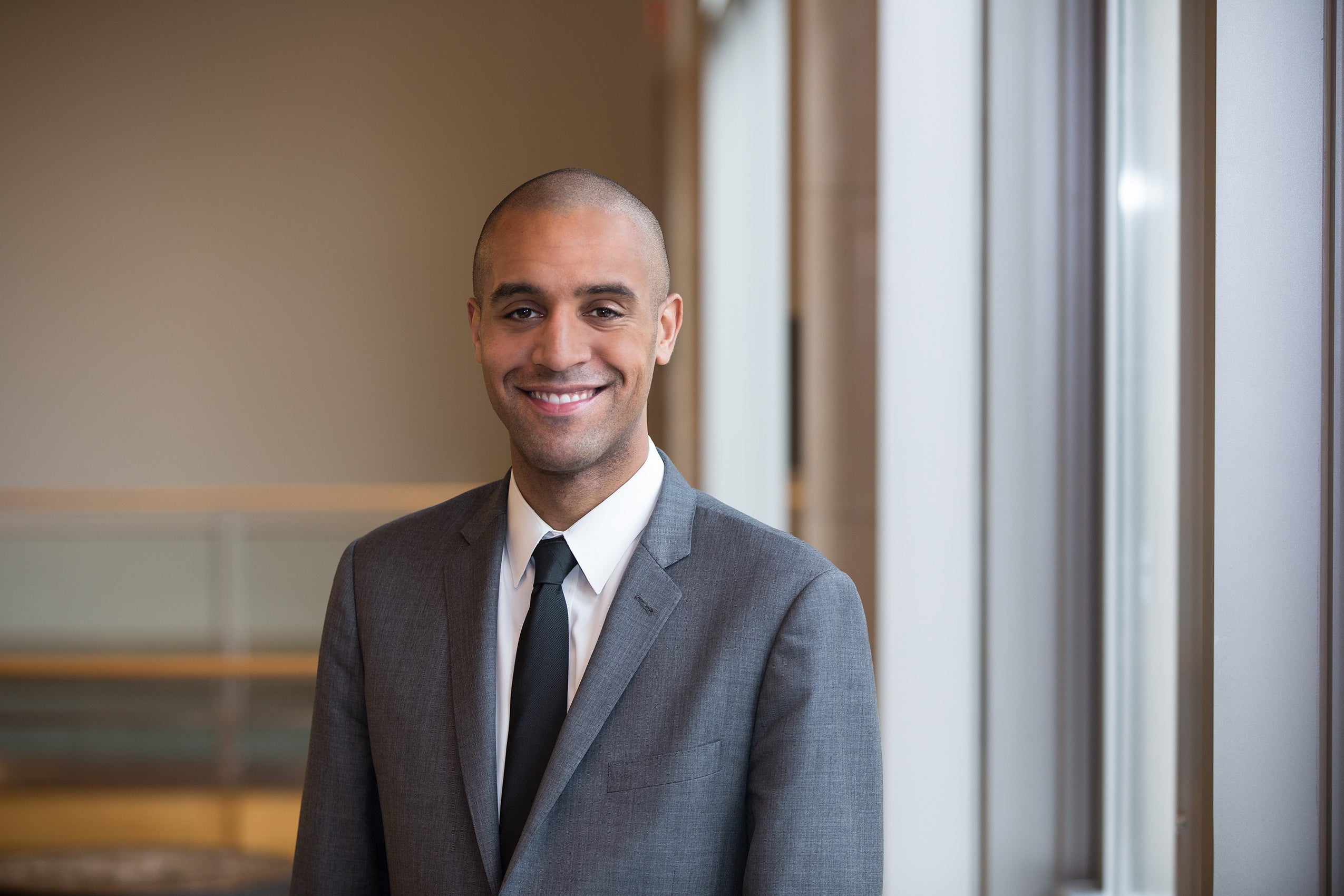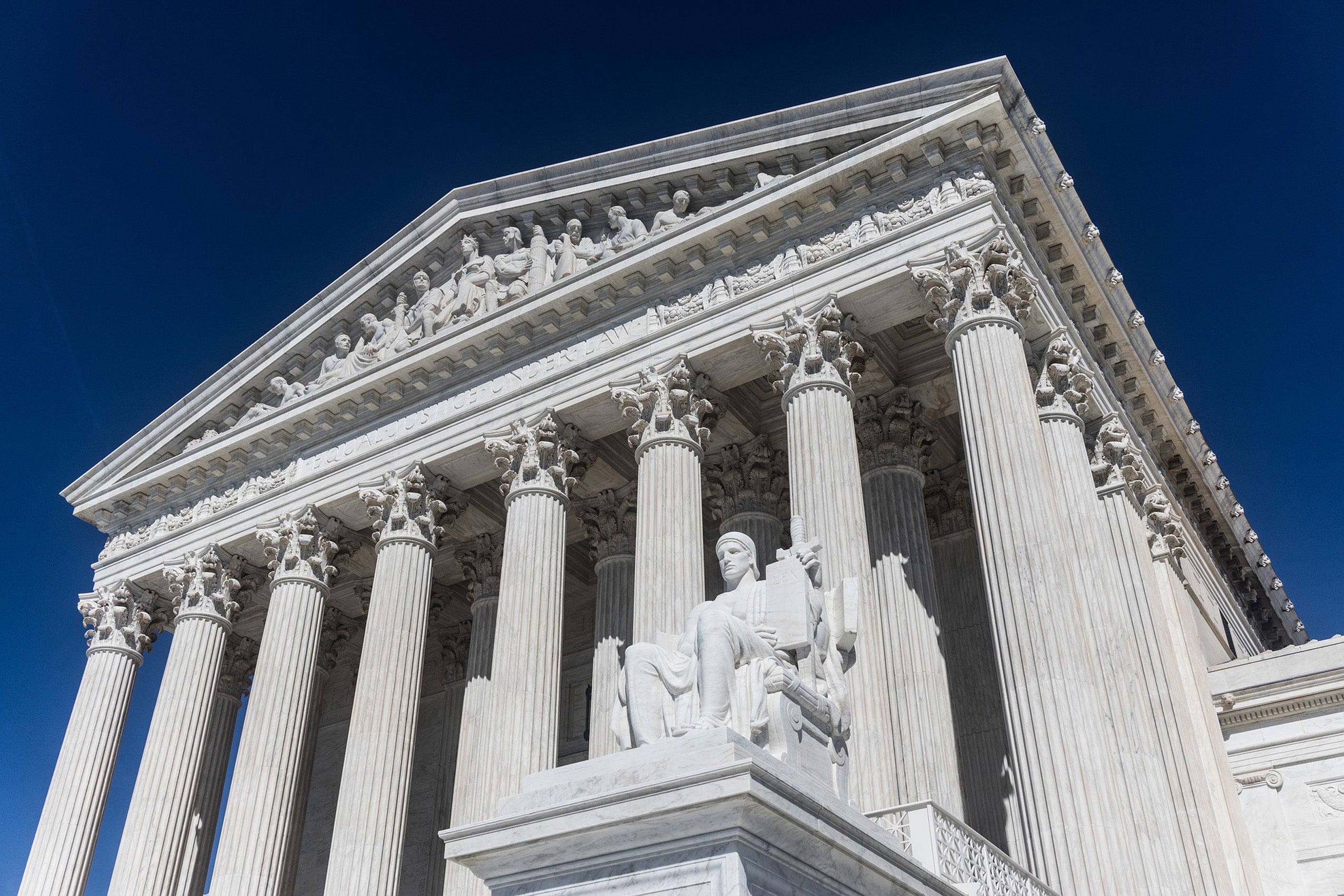On July 9, when the latest Supreme Court issued highly anticipated rulings concerning the president’s tax returns and the treatment of Native American land in Oklahoma, it marked the end of a captivating term. In addition to being a year in which the Court suddenly adopted remote hearings due to the pandemic, the term ended with a series of decisions that fundamentally affect millions of people’s lives in the fields of religious liberty, abortion, immigration, and LGBTQ rights. To explore the significance of this term, Harvard Law Today spoke with HLS Professors Noah Feldman and Nikolas Bowie ’14 about the year’s biggest twists and turns—and what to expect moving forward.
The blockbuster decisions

Professor Noah Feldman
The Supreme Court has a history of going out with a bang, but few terms have ended with so many front-page news decisions, says Feldman. These include such widely discussed cases as June Medical Services v. Russo, in which the Supreme Court struck down a Louisiana law requiring physicians who perform abortions to have admitting privileges at a local hospital, Trump v. Vance, which allowed the Manhattan District Attorney’s Office to proceed with a subpoena of the president’s tax returns, and three cases in which the Supreme Court held that Title VII protects LGBTQ workers from employment discrimination.
Bowie would add McGirt v. Oklahoma, in which a closely divided Court found, with Justice Neil Gorsuch ’91 and the liberal justices in the majority, that most of Eastern Oklahoma is, by treaty, an Indian reservation. According to Bowie, the Supreme Court has steadily limited tribal sovereignty for nearly two centuries by narrowly interpreting treaties and giving Congress increasingly more power over tribal land. McGirt was therefore “a surprise because it was the first time in a generation that the Court has stepped back and said no, we’re going to start applying these treaties as they were originally written and originally promised,” Bowie says. “That’s huge for sovereignty, the country, and American Indians. In some sense, that may be the biggest decision, looking back on this term, in a decade.”

Assistant Professor Nikolas Bowie ’14
And those rulings are just the tip of the iceberg, say Feldman and Bowie. Both noted a major doctrinal shift expanding religious liberty in decisions that insulated many religious employers from federal anti-discrimination laws, expanded access to public funding for religious schools, and allowed employers with religious or moral objections to opt out of providing birth control coverage as otherwise required by the Affordable Care Act. And then there’s Department of Homeland Security v. Regents of the University of California, which by leaving in place for now the Deferred Action for Childhood Arrivals program, Feldman says, made an immediate impact on people’s lives in addition to legal doctrine. “You could make an argument that alongside the abortion case, it was the case that most affected the largest number of real world people,” Feldman says.
The sleeper hits
Barr v. American Association of Political Consultants is a major salvo in a coming attack on the regulatory and administrative state, using the First Amendment as the tool to get you there.
Noah Feldman
In a term that generated so much news, not every decision got the attention it deserved, say Feldman and Bowie. As a First Amendment scholar, Feldman was stunned by Barr v. American Association of Political Consultants, a case concerning a Congressional ban on robocalls to cell phones. The decision did not generate much buzz, Feldman says, although it doctrinally represents a major shift in First Amendment law by suggesting that strict scrutiny applies to all content-based restrictions on speech, as opposed to restrictions based on viewpoint or ideology. Taken to its logical conclusion, Feldman says, such an interpretation of the First Amendment could wipe out nearly all regulations governing mandatory disclosures. “This case is a major salvo in a coming attack on the regulatory and administrative state, using the First Amendment as the tool to get you there,” says Feldman. “In a boring term, that could have been a headline case.”
In addition to the DACA case, says Bowie, the Court also decided two significant cases involving non-citizens’ rights that will be important for the Court’s long-term jurisprudence. In the first, USAID v. Alliance for Open Society International, the Court held that foreign corporations operating outside of the United States do not have First Amendment rights. In the second, Department of Homeland Security v. Thuraissigiam, the Court held that non-citizens detained for removal can be denied habeas corpus relief if Congress so chooses. “It’s not hard to imagine that these two precedents . . . in the near future will lead to further recognition of the federal government’s unlimited power over non-citizens and unauthorized immigrants,” Bowie says.
The leading men
The latest term will be especially memorable, says Feldman, as a major “coming out party” for two justices—Chief Justice John G. Roberts ’79 and Neil Gorsuch ’91. According to Feldman, Roberts—who voted with the majority in an astonishing 97% of cases this term—revealed himself to be “genuinely committed to the preservation of precedent.” Feldman believes that Roberts has always been more loyal to precedent in name than in fact. In this term, however, Roberts wrote the 5-4 opinion striking down a Louisiana abortion law that was essentially identical to a Texas law that had been found unconstitutional four years prior, a case in which Roberts had dissented. Both decisions applied the 1992 holding in Casey v. Planned Parenthood, which created the “undue burden” standard for abortion restrictions. “In the end, the chief justice is definitely saying that he will not overturn Casey, which means he will not overturn Roe. That is huge and it is stunning,” Feldman says.
What surprised me was the length to which the Court strove to appear nonpartisan even as it did things like undermine existing precedent.
Nikolas Bowie
Bowie viewed the decision, along with Roberts’ opinion in Vance and his position in the majority on the Title VII cases, as examples of Roberts’ recognition that the Supreme Court maintains its status only so long as the other branches of government and voters respect its role as a neutral arbiter. “What surprised me was the length to which the Court strove to appear nonpartisan even as it did things like undermine existing precedent,” Bowie says. “If I were involved with the Supreme Court and thinking, ‘I do not want to make the Court subject to a political controversy in the next 12 months,’ the way [Roberts] navigated this term is the perfect way to do that.”
After Roberts, say Feldman and Bowie, Gorsuch played the biggest role and provided the most surprises. Gorsuch’s role was most visible in the Title VII and Oklahoma opinions. In both, says Bowie, Gorsuch proved himself to be “willing to vote his conscience” and “not simply a partisan justice who will just vote whatever way Republicans want in every case.” In the Title VII cases, Gorsuch “applied the statutory philosophy known as textualism, which everyone associates with Scalia, to reach its obvious conclusions even where Scalia himself would not have taken it there,” Feldman says. “By doing so, Justice Gorsuch forced all liberals, including liberal law professors, to sit up, take notice, and say: oh my god, this guy’s not kidding around.”
A sneak preview
After a whirlwind term, Feldman anticipates that next year will be a quieter one for the Supreme Court, notwithstanding the presidential election. Feldman will be keeping an eye on the actual composition of the Court, including whether certain justices—particularly Clarence Thomas and Ruth Bader Ginsburg—will gear up for retirement in the face of the upcoming elections and their own age and health situations. Doctrinally, he also anticipates a continued attack on the administrative state, led by Gorsuch and most vehemently opposed by Justice Stephen Breyer ’79, who wrote a dissent in the robocall case.
Bowie notes that there will be a few cases to watch, including one about whether the Affordable Care Act is now unconstitutional given a congressional amendment that eliminated the penalty for failing to purchase health insurance. After this term, however, he anticipates the Court will want to shy away from politically divisive cases and return to business as usual.
But it may not be able to, he says. Bowie notes that the Trump administration has appointed more judges so far to appellate courts than President Obama did in eight years. Those judges have been overwhelmingly white, male, and willing to accept conservative arguments that were once considered far-right of mainstream, Bowie says—and those cases will, inevitably, lead to appeals. “I don’t think the Supreme Court, as much as it would like to be, will be out of the political fray,” Bowie says. “The Court will have to step in, or not, to keep the courts relatively politically neutral.”
